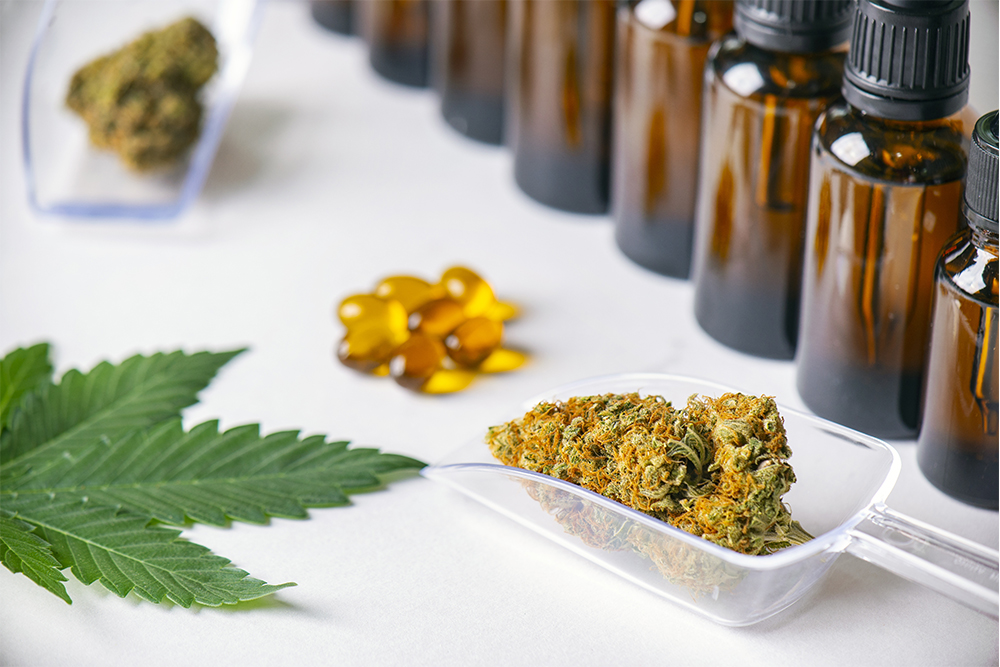The Power of Plants: The Health Advantages of Marijuana
In recent years, the dialogue surrounding marijuana and cannabidiol products has evolved from one of taboo to one of acceptance and interest. With a increasing amount of research highlighting their potential health benefits, an increasing number of individuals are exploring how these botanical compounds can boost their well-being. Whether employed for stress relief, pain relief, or to enhance overall health, cannabis and CBD are receiving acclaim for their medicinal effects.
As society becomes more aware about the intricacies of these herbs, it is important to understand the distinctions between cannabis and CBD products . While cannabis is frequently associated with recreational use, it also harbors healing qualities that can address various health concerns. Meanwhile, CBD, or cannabidiol, is a non-intoxicating compound that delivers many of the therapeutic benefits without the intoxicating effects. Together, they represent a powerful toolkit for enhancing health and wellness in organic and beneficial ways.
Comprehending The Cannabis Plant and CBD
Cannabis is a plant that has been used for thousands of centuries for both medicinal and leisure purposes. It contains a diversity of compounds, known as cannabis compounds, the most well-known being THC, which is responsible for the intoxicating effects linked to cannabis. However, an additional significant cannabinoid is cannabidiol, which has gained massive recognition for its wellness advantages without the high linked to THC. This distinction makes CBD a especially attractive option for those seeking relief from various ailments without the mind-altering effects.
CBD products are derived from the industrial hemp variety of the cannabis plant, which is deliberately genetically modified to have low levels of THC. These products come in various formats, including oil products, tinctures, food products, capsules, and topicals, providing consumers with a variety of choices to integrate CBD into their health regimens. The expanding proliferation of these products in many areas has ignited interest in their potential health benefits, making it easier for individuals to access organic alternatives for managing health conditions.
Research into cannabis and CBD continues to grow, highlighting their promising benefits in areas such as alleviating pain, anxiety reduction, and inflammatory control. While consumers often report favorable outcomes, it is essential to tread these products with an insight of individual needs and responses. As a growing number of investigations become available, we are starting to uncover the nuances of how cannabis and CBD affect the human physiology, paving the way for a deeper understanding of their function in health and wellness.
Health Benefits of Cannabis
Cannabis has been used for centuries for its medicinal properties, and recent research continues to unveil its numerous health benefits. One of the most major advantages is its ability to alleviate chronic pain. Many patients suffering from conditions such as joint pain, multiple sclerosis, and fibromyalgia have reported notable relief when using cannabis products. This plant-based alternative offers a solution for those seeking manage pain without depending on pharmaceuticals, which can carry a variety of side effects.
In addition to pain relief, cannabis has shown potential in mitigating anxiety and depression. The compounds present in cannabis, particularly cannabidiol, interact with the body's cannabinoid system, which plays a important role in regulating mood. Many individuals have turned to cannabidiol-based treatments as a natural remedy to help manage their mental health conditions, encouraging a sense of calm and improving overall emotional well-being. This shift toward using natural solutions for mental health emphasizes the growing awareness of cannabis as a viable alternative to traditional medications.

Furthermore, marijuana has potential benefits for conditions such as epilepsy and seizures. The FDA has approved a CBD-based medication for specific forms of epilepsy, demonstrating the compound's effectiveness in lowering seizure frequency. Patients with drug-resistant epilepsy have found hope in cannabis products, as they often experience less and milder seizures with these therapies. This underscores the need for ongoing research into the medical uses of cannabis and its potential role in treating various neurological disorders.
Selecting the Appropriate CBD Products
As you consider picking CBD products, the initial step is to perform comprehensive research on the companies and their sourcing practices. Look for companies that offer third-party lab testing results, which guarantee that their products are free from harmful substances and have the stated levels of CBD. Openness from the manufacturer regarding their extraction methods and component sources can give you assurance in the quality of the product you are considering.
An additional important aspect to consider is the kind of CBD product you want to use. There are multiple forms available, including oils, edibles, capsules, and creams. Each product type has its own benefits and optimal methods of consumption. For instance, oils can provide rapid relief, while food products may provide sustained effects. Consider your specific needs and lifestyle to figure out which format would be most convenient and effective for you.
Finally, pay attention to the dosage as you familiarize yourself with CBD products. Every person's body reacts uniquely to CBD, so starting with a low dose and slowly increasing it can help you identify what is effective for you. It's also advisable to consult with a healthcare professional, especially if you are taking additional medications or have pre-existing health conditions. By being knowledgeable and mindful of these factors, you can select the best CBD products for your health and wellness journey.